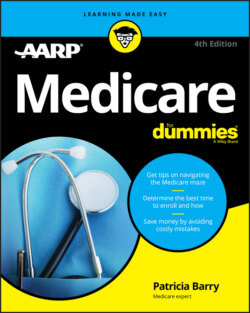Читать книгу Medicare For Dummies - Barry Patricia, Patricia Barry - Страница 79
Determining when you may be liable, even if your income isn’t high
ОглавлениеSeveral factors can push some people up above the surcharge threshold even if their regular incomes are quite modest, including the following:
A one-year increase in income from the sale of property, such as a house, even if it’s your main residence
A one-year increase in income from cashing in part or all of a tax-deferred asset such as an individual retirement account (IRA) or from selling some stocks and shares
A one-year increase in income from a windfall, such as an inheritance
Be aware that such boosts to your income in just one year can land you with a premium surcharge. However, it will not be permanent. The following year, your premiums will be based on your regular income.
Here are some examples illustrating how surcharge liability can change:
In 2017, a few years after Bob and Julia retired, they sold their family home and downsized to an apartment. On the joint tax return they filed in April 2018, they declared the money earned from the house sale in 2017. This amount was enough to raise their MAGI above the threshold for a married couple. So in 2019, they had to pay a surcharge on their Part B and Part D premiums, even though their income was now much lower than it had been two years earlier. In 2020 — based on the 2019 tax returns that reflected their regular income for 2018 — they no longer had to pay a surcharge and returned to paying standard premiums.
When Jim retired, he put some savings into a tax-free IRA. In 2018, on reaching age 70.5, he was then required by law to draw money out of the account. This withdrawal counted as taxable income on the tax returns he filed in 2019. It pushed his MAGI over the threshold for a single person, so he paid surcharges on Part B and Part D premiums in 2020.
